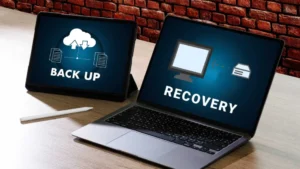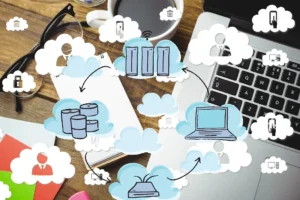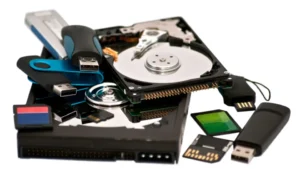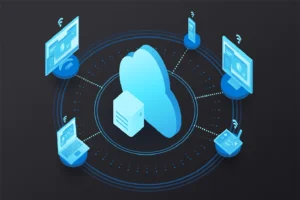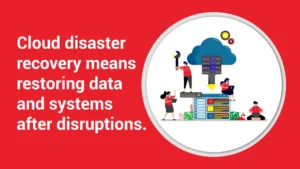Did you know that 92% of all customer interactions happen over the telephone? According to Entrepreneur Magazine, the first call from a customer is the most important. They are judging rather to do business with you based on that phone call. They consider how the phone call is answered, if they speak to a “real person”, 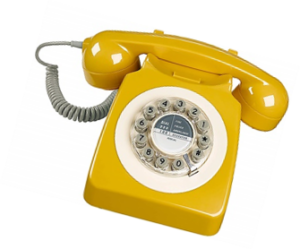
I have a cell phone, so why not just give out my personal number and run my business with that? This approach is done by many entrepreneurs. It’s convenient, cost effective and seems smart. But in many cases, it doesn’t convey a professional image to your customers. Sometimes it’s a matter of answering a call when the background is noisy or there are distractions. Often there is no way to easily screen calls, do video conferencing, or forward the calls on a cell phone. Other features such as music on hold or voicemail to email are also not normally available. When an Entrepreneur’s personal cell phone is also their business phone, there is no downtime. There is no separate ring for business or personal calls, so the calls can interpret family time and vacations. This can lead to burn out.
So how do I keep my business phone separate from my personal number? Let’s talk about some of the options and how to decide what’s best for businesses. When it is time to consider the different type of phone systems, it is important to first know what your needs are:
- Are you and your staff working at a single location, remotely, or spread over multiple locations?
- What features do you need – such as voicemails, call forwarding, call recording, automated attendants or menu, call reports, video conferencing, etc.
- How or who will maintain the software and hardware for your phone system?
- What size of system do you need now? Will the scope change in the future?
- What is your call volume, and will your data / Internet network bandwidth handle those calls?
- Will you be using other services, such as credit card or fax, that needs a dedicated phone line?
- Do you have any compliance or licensing requirements regarding your call logs or recordings?
Let’s look at what the various options are for business phone systems…
Traditional Landline Systems
We are all familiar with traditional landline systems. They are supported by a local or regional phone company, which runs over solid core, twisted pair copper wiring and an analog switch. In a landline system, the phone company works with the business IT department to install hardware that creates multiple extensions and provides phone system features such as phone transferring and directories. This is the ideal solution for businesses without a high-speed internet option or large corporations that have an in-house IT staff to maintain the system. These systems are reliable and time-tested solutions, because they use physical wire connections to make and receive calls and aren’t as susceptible to service interruptions. Most phone system providers are moving away from landlines, due to copper lines not being installed in new buildings, and the maintenance and space required. Many believe these will be obsolete in the distant future. Sometimes you hear of “Digital Voice”, but this is not a true landline; they work over an Internet or fiber optic system.
Virtual Phone Systems

VoIP Phone Systems
VoIP phone systems, also known as Voice over Internet Protocol, use an Internet connection and can be accessed with either a desk phone or through an app on a computer. According to recent research by the Business News Daily, more than 1/3 of all businesses are now using VoIP phone systems and the vast majority of those have fewer than 50 employees. It can be integrated with email and other office services, allowing voicemails to be emailed or documents can be faxed. A VoIP system provides a scalable system that can expand with a business. They are quick to configure and normally less expensive than true landline system. However, they do reply on an Internet connection and therefore does need a high-speed reliable Internet connection. A business should connect any desk phones or PCs used for telephone services via a network cable, not over a Wi-Fi system, for the best quality and clarity. There are two types of VoIP systems: On-Premise server or Cloud-based.
For an On-Premise VoIP phone system, a computer server, to host the system, is set up at your business location There can be a larger capital expense upfront if purchasing the system, or a monthly rental fee for the hardware, compared to a cloud-based system. Local IT staff is necessary to maintain, repair, and upgrade the system. Some businesses in certain industries have regulatory or compliance requirements that makes this option the best choice. This option gives the business 
Growing businesses wanting a more affordable option might find the Cloud-based VoIP system a better fit. With cloud-based or cloud-hosted systems, there is no hardware, other than phones, to be maintained. The service provider takes care of all the hardware. New lines or features can be added quickly, by logging into an account dashboard. Most businesses pay a monthly fee on a per-user basis. Unlike the On-Premise option, the data is stored in a Cloud environment, allowing the phone system to work for multiple locations on a single platform.
In a Cloud-Hosted system, many phone providers will offer businesses the option to be on a shared server with other companies or pay extra for a dedicated server for only their phone systems. Smaller businesses without a lot of customization or multiple inboxes are normally comfortable with the shared servers. However, when a company grows and their needs become more complex, the dedicated server will often allow for better quality and privacy.
Each business is different and their telephone needs vary, so when deciding what system is best for your business, we suggest you meet with an IT Professional who can examine your current phone needs, measure your bandwidth, and look into the various features your business need. They can then make sure you get the best fit for your phone system and give you an estimate. For a free evaluation of your phone system needs, fill out the form below and let’s set up a time to chat. Better yet, give us a call!

